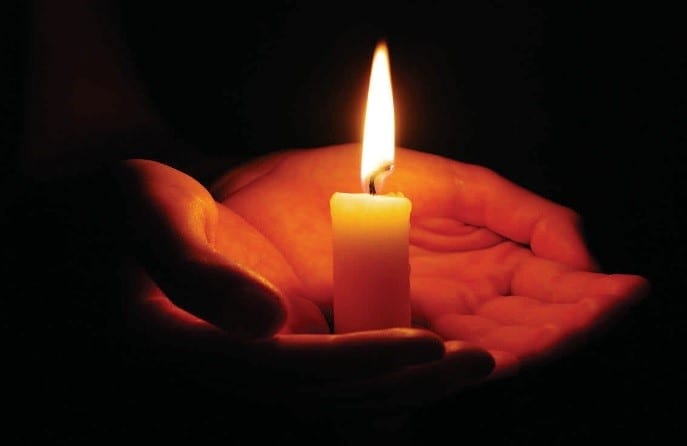by Fadya Salem

The Journal for Social Justice, University Ministry, and the Center for Public Interest Law had the honor and privilege of hosting Sister Helen Prejean for a roundtable discussion with students, faculty, and alumni in April.
Sister Helen, Nobel Peace Prize Finalist and New York Times bestselling author of the academy award winning movie, Dead Man Walking, is an anti-death penalty advocate who has served as a spiritual advisor to death row inmates.
As a law student, I was eager to join the discussion with Sister Helen. After having studied wrongful convictions in an undergraduate course, I came to law school with the desire to advocate for those who have wrongfully fallen victim to the criminal justice system. I learned from Sister Helen the importance of not only fighting for the people we believe are innocent, but to advocate for the rights of those who have done something wrong, because they too should still be treated with dignity.
My religion, like some others, teaches that there are certain acts that are punishable by death. I sought to participate in this discussion in hopes to reconcile my religion’s views with my moral belief that the death penalty is wrong. I was moved by Sister Helen’s discussion on Boston Marathon bomber Dzhokhar Tsarnaev, whom she spoke on behalf of during his trial, and her insistence that, although his actions caused three people’s death, he still has human dignity.
Sister Helen began her anti-death penalty advocacy while living in the St. Thomas housing project in inner-city New Orleans. It was there that she became aware of the harrowing connection between poverty and oppression and prison. While in St. Thomas, she became pen pals with a Louisiana death row inmate.
The roundtable conversation began with Sister Helen describing her first experience as a spiritual advisor for a death-row inmate. She described it as a “secret ritual” that much of the rest of the world renounces. This experience became the subject of her first book, Dead Man Walking. The book was published in 1993, a time when 80% of Americans supported the death penalty.
Despite the large number of death penalty supporters, Sister Helen knew the story needed to be told. She finds that many people who support the death penalty do not know much about the process and what it entails. She works tirelessly to resist the death penalty and educate the public as a lecturer and writer.
When asked how she chooses inmates to work with, Sister Helen said it is a decision that she can’t explain. She has been a spiritual advisor to five death-row inmates, visiting with them from throughout their time in prison and to their execution. She also counsels the families of murder victims as the founder of “Survive,” a victim’s advocacy group in New Orleans.
A powerful point in the conversation came when Sister Helen pushed the group to think about how we treat a human with dignity. With the firm belief that “everyone is better than the worst thing they’ve ever done,” she reminded attendees that, despite their actions, people in jail are still human, which is the same value that St. Vincent advocated in his work.
I recall a discussion in my criminal law course about different methods of executions, when a fellow student asked, “If they killed someone, why do we care how we treat them?” For many people, the death penalty is such an abstract phenomenon that may be difficult to conceptualize. Sister Helen adamantly believes that if people knew what happens at executions, there would not be as many supporters.
Sister Helen described the important role lawyers play in anti-death penalty work: Lawyers are critical in framing the story told about inmates and furthering the idea that they are better than their crimes. For death-row inmates, lawyers and advocates are often times the only human dignity they have left. It is the passion for human dignity that keeps Sister Helen moving forward in her fight against the death penalty.
Fadya Salem just completed her first year of law school at DePaul. A Chicago native, she is an alum of the University of Illinois and hopes someday to practice law within the public interest arena.
An earlier version of this piece was published online by the Center for Public Interest Law at DePaul University in May.



